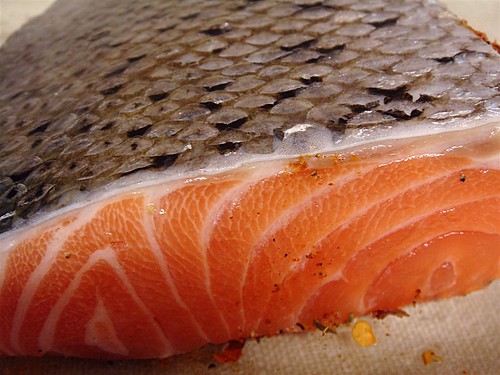Fish. What can I tell you about fish that you don't already know? Well, here are a few facts gleamed from the Wikipedia page on ichthyology.
- First off - ichthyology. What kind of word is that? I love word origins: ikhthus is Greek for fish. The ending -ology implies the study of something, and that's because logos is Greek for study.

- There are 31 500 different species of fish - that's more than all other vertebrates combined (including mammals, birds, reptiles & amphibians)! On average, 250 new species of fish are being discovered yearly.
- The term fish encompasses bony fish (a typical skeletal fish), cartilaginous fish (like sharks & rays which have a skeleton of cartilage instead of bone) & jawless fish (lampreys & hagfish).

- Fish come in all shapes & sizes. They're often well adapted for their conditions - I'm sure all of you know about clown fish hiding in anemones (thanks to Nemo). These leafy sea dragons (a type of seahorse) are a perfect example of camouflage in the ocean.

- Not all "fish" are actually fish though. Obviously, there are a number of marine mammals that are not fish (seals, whales, dolphin), but there are also many invertebrates inaccurately called fish: jellyfish, shellfish, starfish, etc.
- Fish don't "breathe" water - they use their gills to extract oxygen from the water. A complicated network of tiny blood vessels in the gills uses the difference in the pressure (or concentration) of oxygen to absorb the gas into the blood. Some fish can breathe air too though - indeed, some lung fish have to breathe air or they suffocate. Some fish, like bettas, can breathe air if they need to. Others can "breathe" air through their skin (mudskippers) or digestive tract (catfish).

Have any interesting fish facts to share?

1 comment:
Do some fish keep growing until they die? I remember a 200-pound catfish that was found in the trunk of a submerged car in the Brazos River. It swam in when it was little, grew, and apparently couldn't get out, but enough food came in that he was able to survive.
Guppies are interesting to me--they bear their young live. Do most fish lay eggs?
You are a very good writer.
Post a Comment